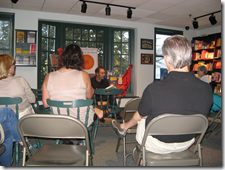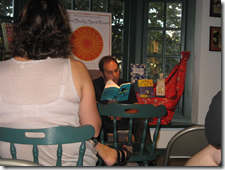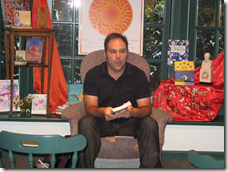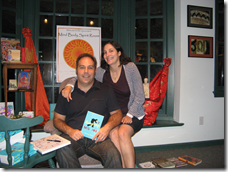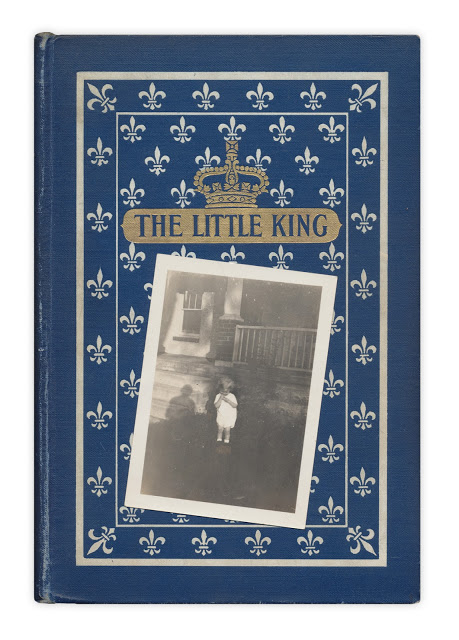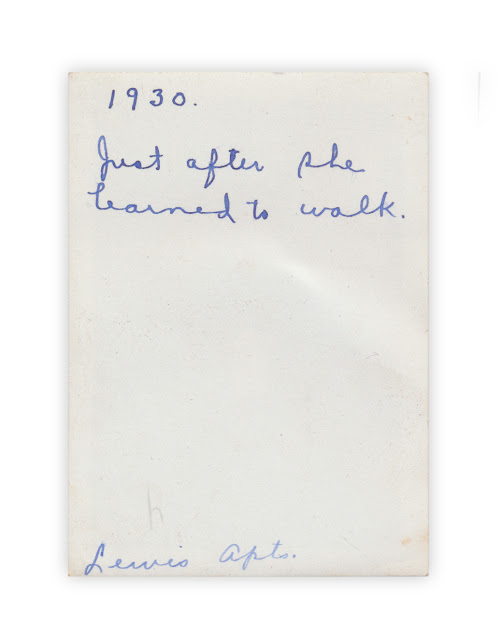On Friday night I went to RJ Julia Booksellers to listen to Nicholson Baker, one of my favorite authors, speak about his new book, THE ANTHOLOGIST. Baker became one of my favorite authors when my agent recommended his work to me a couple years ago, suggesting that we share similarities in style.
While this may be true, it’s sort of like comparing a mountain to a molehill. We may have a similar shape, but the comparison ends there.
He’s truly a literary giant.
Despite the esteem in which I hold the man, it was odd watching one of my heroes stand in the same room, in front of a similarly sized audience, and do what I had done just a month or so before.
For a moment, I almost felt as if I were Baker’s peer.
Adding to the diminishment in his grandiosity was the fact that he was almost an hour late, trapped in horrendous traffic coming out of New York.
“Traffic?” I thought. “Why aren’t the state police escorting him to Madison? Don’t they know that we have Nicholson Baker on our state highway! Why isn’t a man like Nicholson Baker immune to traffic? He doesn’t have time to waste sitting inside a car! He needs to be writing!”
As the minutes ticked by, he began to seem more and more human to me. “If traffic can slow this master storyteller down, perhaps he’s not so special after all.” So when he finally walked in, flustered and apologetic, struggling to find the button on his jacket as he began to speak, I had started to think of myself as a fellow writer, a comrade in arms, just another one of the guys.
Nicholson Baker and me. Two guys doing the same job.
Then he began speaking, reading from THE ANTHOLOGIST and explaining the process by which he wrote the novel, which began by sitting in a white, plastic chair in the middle of a stream and videotaping hour upon hour as he dictated the first draft aloud. And as he spoke, describing this intricate process and the amount of re-speaking and revising that went into the creation of the book, his stature increased exponentially until I once again felt like that molehill nestled in the valley of his Everest.
Damn that man is smart. And committed. And creative.
By the time it came for him to sign my copy, I was awestruck once again. In fact, when he asked to whom he should address his signature, I said myself, forgetting my justifiably annoyed wife who was sitting two feet away. Sure, he was a little late, and yes, he spoke in the same venue as me, to about the same number of people, but that is where the extend of his ordinariness ended.
Nicholson Baker my peer? What could I have been thinking?
I am little more than a scribbler. He is a writer.
In the course of his discussion, I asked him about how people often associate qualities of a protagonist with an author, and how that might have come into play when writing THE FERMATA, the story of a man who can stop time in order to undress women. It’s a book that my agent recommended, but when doing so, she asked that I don;t think of her as a pervert for enjoying it.
It’s quite raunchy.
He was honest about the issue, explaining that the story originated with his adolescent fantasy of doing just what his protagonist could do, and that his wife found the story interesting and amusing, though she also felt that the protagonist should have been punished for his indiscretions in the end.
I guess that even the great Nicholson Baker can’t please them all.
